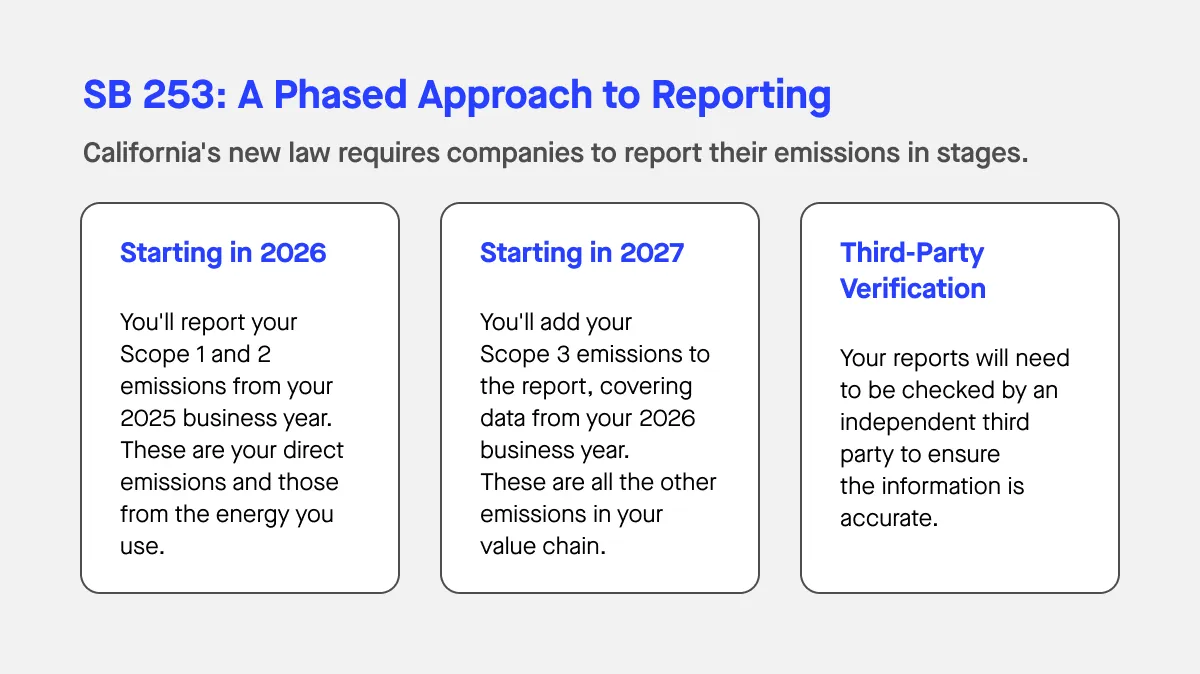This level of transparency gives your investors, customers, and even regulators the information they need to make better decisions.
Ultimately, SB 253 turns climate action into a strategic opportunity. By tackling this head on, you’re not just avoiding penalties. Understanding and disclosing climate risk is increasingly important for investor confidence and long-term business resilience. You’re building a more resilient business, finding new efficiencies, and getting ahead of your competitors in a world that is demanding real action.
Why is getting a head start so critical, and what are the risks of waiting?
When we think about the practicalities of reporting, the deadlines for California’s climate disclosure laws might seem a little far away, but they really aren’t. The complexity of these requirements is why timely reporting implementation is so important. Companies will also need to evaluate trends in their emissions data over time to ensure ongoing compliance and continuous improvement.
The biggest challenge is simply the sheer amount of data needed, especially for Scope 3 greenhouse gas emissions. You have to gather this information from across your entire value chain, and that can be a huge effort. Emissions must be measured and reported in accordance with the Greenhouse Gas Protocol to ensure consistency and comparability. This goes for all kinds of businesses, from partnerships to limited liability companies, across a wide range of particular business sectors. It’s not a one time task. Getting a head start allows you to build a robust foundation that will stand up to scrutiny.
Ultimately, the goal of these efforts is to achieve meaningful greenhouse gas emissions reductions.
What other practical considerations, should business entities keep in mind regarding this law’s implementation and how it might evolve?
Great question. First, let’s talk about the enforcement. The California Air Resources Board (CARB) is the state agency responsible for oversight, developing, and running this whole reporting program. CARB will establish an emissions reporting organization to manage the public disclosure and verification of emissions data. CARB is empowered to enforce compliance and seek administrative penalties for violations of the reporting requirements. The program is funded through an emissions disclosure fund, which collects fees from reporting entities to support implementation and compliance activities. This is a continuously appropriated fund to ensure ongoing support for program implementation.
The goal is to make all of the information publicly accessible, so stakeholders representing consumer, environmental justice interests, and other government stakeholders can all view the data. CARB’s regulations also address criteria pollutants and toxic air contaminants, and relevant policy committees provide oversight and guidance for these regulations. CARB will also coordinate with the federal government to align state reporting frameworks with national standards and ensure consistency across agencies.







